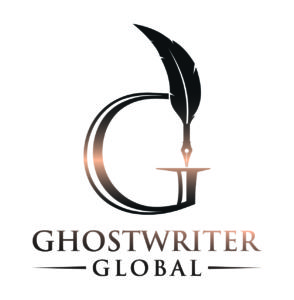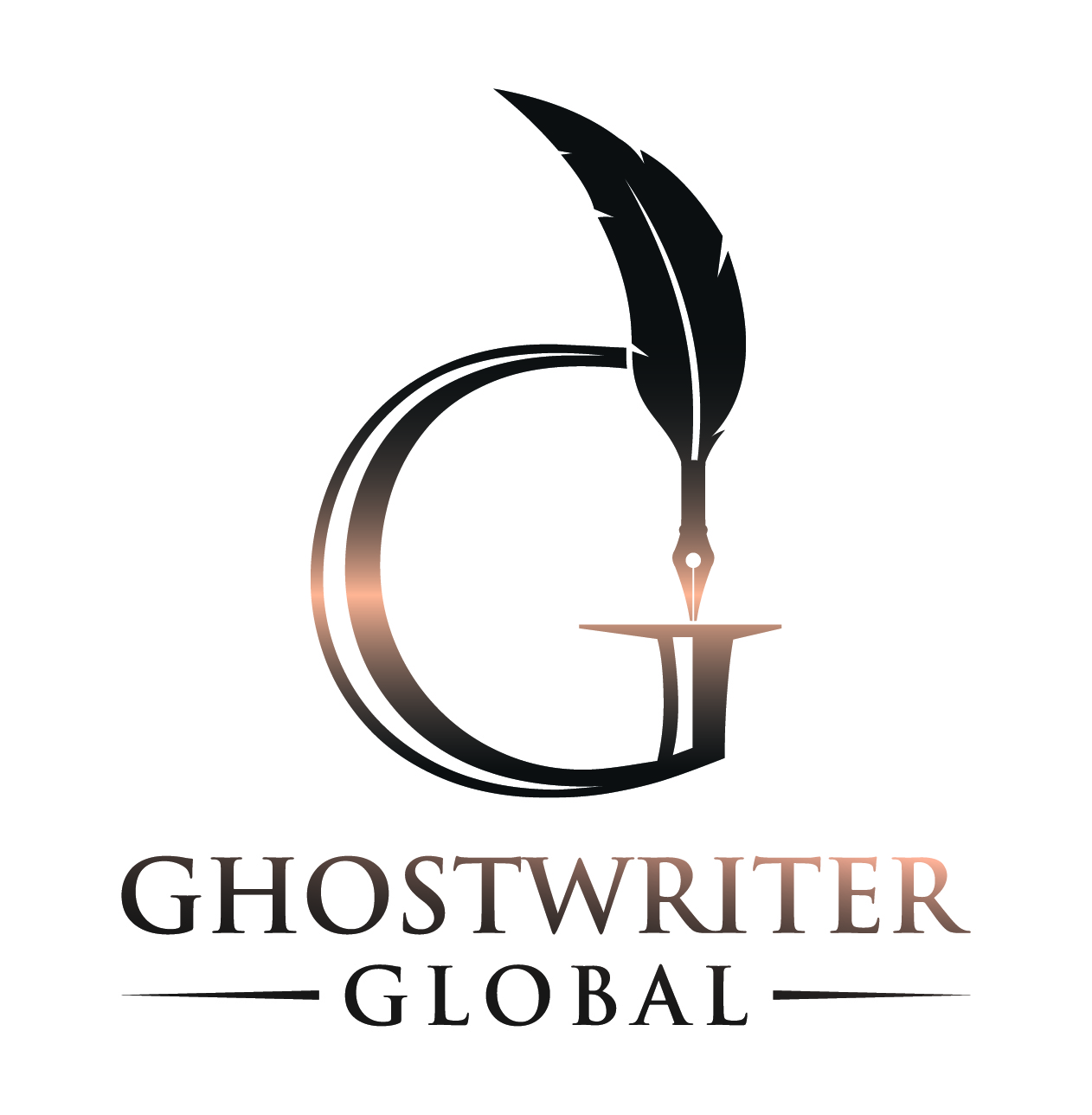 What is a ghostwriter?
What is a ghostwriter?
Your creative (silent) partner.
Ghostwriters write your book but don’t get credit of any kind. Ghosts collect their fee and you collect the applause.
- When you want to do the writing, a ghostwriter helps make your book as good as possible by giving you objective input, edits, or structure tips.
- When you get bogged down mid-manuscript, a ghostwriter can give you fresh perspective, clarify where the flow has stumbled, or identify gaps in information.
- When you don’t want to write, a ghostwriter uses your verbal interviews and turns them into your book.
 Who uses a ghostwriter?
Who uses a ghostwriter?
More people than you might think:
- Busy executives
- Politicians
- Public figures
- Athletes
- Celebrities
- Scientists
- Thought-leaders
- Inventors
- Aspiring novelists
 Why should I write a book?
Why should I write a book?
For so many reasons:
Memoirs tell the story you want your family and friends to know.
Books are the new business card for experts and CEOs.
Legacy books inform and inspire others.
Let us count the ways books are essential for every thought-leader, speaker, innovator, business executive, and anyone who wants to be remembered:
- Your book establishes you as an expert.
- Books preserve your name, idea, or process.
- Books organize your thoughts for presentations
- Your book creates Back of the Room (BOR) revenue.
- A book motivates more speaking engagements.
- Books attract more clients
- Your book encourages interviews
- Books promote your online products, lessons, webinars
- Your book impels corporate tie-in affiliations
- Books easily tie-in with special events and occasions
- Future generations can use your book to build upon, and present readers can use it for inspiration.
 Isn’t it a huge project?
Isn’t it a huge project?
It is! Working with a ghostwriter simplifies the process. And you could be amazed, pleased, satisfied, fulfilled.
Holding your own book in your hands is thrilling.
Giving it to others creates a strong branch for your family tree, a reminder to business associates of your expertise, a font of knowledge for those who need it, a role model for others to emulate.
 How long does it take to write a memoir, expert book, legacy book or novel?
How long does it take to write a memoir, expert book, legacy book or novel?
Every project has its special needs, but there are some general time frames you can plan on that may fluctuate according to your availability. We can include a mutually agreed cut off time line in our contract.
- Memoirs take 6-12 months including the interviews, research, writing, editing and travel
- Non-fiction expert/business books and legacy books can be completed in about 5-7 months
- Novels (about 75,000 to 100,000 words) take 6-12 months
 How do we write the book?
How do we write the book?
Our step-by-step process is explained on the How It Works page
 How is your fee paid?
How is your fee paid?
After your first payment when your contract is signed, the rest is simply paid in monthly installments. I charge your credit card each month until your book is complete or we reach our agreed-upon cut off time.
 Why don’t you accept a percentage of sales as part of your fee?
Why don’t you accept a percentage of sales as part of your fee?
As a ghostwriter, I work hard to make sure your manuscript is what you want and is a marketable literary property ready to be given the serious consideration it deserves. My fee is a fair exchange for that quality.
The sales from your book are dependent on factors outside our contract. By limiting my fee to our stated contract, our relationship has clear boundaries that allow us to work together in a smooth, uncomplicated way.
 I’ve already started writing but need some help
I’ve already started writing but need some help
Excellent, and congratulations! We can work together in two ways:
- Analysis & Recommendation – based on the first 25-50 pages of your book, I assess it and make recommendations for flow, structure, market viability, character development, etc.
- We work via Monthly Mentoring – a monthly fee that gives you weekly 90-minute sessions where you can ask questions or we can go over what you’ve written. This is a monthly contract that can be renewed each month or is a single purchase.
 Do I need a book proposal?
Do I need a book proposal?
If you are planning on submitting to a literary agent or publisher, you’ll need a book proposal.
The non-fiction book proposal tells agents and publishers who you are and why you’re qualified to write this book.
It includes
- an industry analysis
- a comparison with competing titles in the market
- a synopsis of the book
- a chapter-by-chapter outline
- 2-3 sample chapters
- any existing or upcoming promotional appearances, websites or social media you will use to promote your book.
Non-fiction book proposals can be submitted without having a completed manuscript.
Fiction books must have a completed manuscript before reaching out to literary agents via a query letter. Publishers do not accept query letters. When the agent responds positively to your query letter, you will submit a book proposal that includes the some of the main components of a non-fiction proposal as well as your complete manuscript and synopsis.
A book proposal is an art form that requires significant time, creativity, and knowledge of both your book and the industry. This fee is separate from your manuscript’s contracted price.
 What about self-publishing?
What about self-publishing?
The validity of a self-published book continues to gain wide acceptance. In 2012 ebooks outsold hardcovers for the first time in history.
Yes, there is inherent clout associated with being published by a traditional publishing house. But there is also a payment: authors generally get 6%-10% of the book’s cover price and lose a lot of control of the publishing process, while still being responsible for significant aspects of promotion.
Self-publishing means you get 80% of the sales. It also means you do all the heavy lifting yourself. For some authors, that’s fine; for others, it’s too much work.
Only you can decide.
 Will you help me find a literary agent or publisher?
Will you help me find a literary agent or publisher?
I can help you find and solicit a literary agent or publisher for your niche market. This service requires research and additional writing specifically tailored to the agent or publisher, for which additional charges apply.
spturgon@gmail.com
510-593-3925

